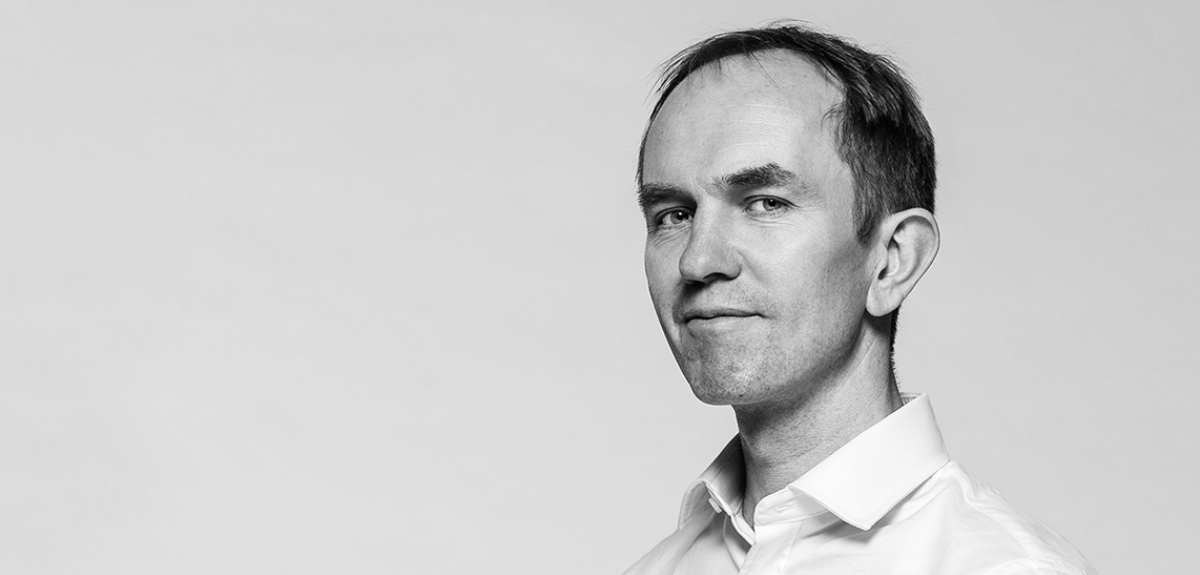
'We will start from the perspective of the audience' – Q&A with John Fulljames, incoming Director of the Humanities Cultural Programme
John Fulljames will join the University in November as Director of the Humanities Cultural Programme. We sat down with him to hear about his previous roles as Director of the Royal Danish Theatre and Opera and as the creator of a successful arts start-up; why he is so excited to work with the University and the City of Oxford; and his vision for the HCP.
Tell us about your experience as Director of the Royal Danish Theatre and Opera.
I have been in Denmark over the last five years, which has been an extraordinary time in the world – and in the world of culture. The pandemic has challenged the relationship between cultural institutions and audiences. But it has also offered enormous opportunity as societies have seen new value in coming together for shared live experiences. I have been really amazed and proud of the Royal Danish’s audience, which is stronger now than it has been for 15 years. That is truly remarkable given the time we have been through.
How did you achieve that?
I think the reason is that we were already very focused on growing a younger and more diverse audience by ensuring that the projects which we were putting on the stage would resonate with them and by building trust that we would deliver positive experiences. We had a strong focus on communicating clearly and transparently to a wide range of different audiences. I hope we can use a similar approach here to build audience trust in the programme of the Schwarzman Centre.
You also launched and ran a start-up company called The Opera Group. Tell us more about that?
The Opera Group was a company that I set up in my early 20s along with some amazing colleagues. It grew to become a regular commissioner of contemporary opera and a tourer in the UK and beyond and really flourished as an associate company at the Young Vic in London. I loved the experience of growing an organisation from scratch, and building the partnerships and networks necessary for it to thrive. We were so conscious of the value which the company gained from working in partnership with the established Young Vic, and also what the energy of our young company brought to them.
There sound to be parallels to where the Humanities Cultural Programme is in this early stage. What do you hope to apply from your previous experiences to the HCP?
The crucial thing about growing a new enterprise is to convene and nurture a brilliant team of people. We have the chance to do that here in Oxford. I see so much potential in building on the success of TORCH and the HCP over the last few years as we seek to establish the new venue with a rich and diverse programme. I see this as an opportunity not only to create something new for Oxford, but to work with a new generation of artists and companies and support them to do things which have never been done before!
What interested you most about this job?
It is unique to have a multi-disciplinary arts centre which will sit at the core of three different communities: the Oxford city and region, the university community, and the international cultural community. If we can grow the programme with all of these communities, so that they can all recognise themselves in it, we should also be able to offer each of them new opportunities to connect with each other. There is a fantastic cultural ecology in Oxford of which the new building and programme will become part. That’s a cultural ecology of individual artists as well as institutions such as theatres, music organisations and museums. I look forward to being part of that and hope to develop a range of local partnerships to complement the international partnerships we want to form.
How will you go about making your programming resonate with these audiences?
The Schwarzman will be a public building in the heart of the University. So we will start from the perspective of the audience – what do they want and what isn’t available in the local cultural ecology? We need to find ways of involving people not just as audiences but also as we incubate and develop projects here in Oxford. We can do this in a very local way – the Schwarzman Centre will be a building for Oxford with content developed in Oxford. At the same time, we can do it in an international way by presenting world-class content which would otherwise not be seen in the region and which can attract both live audiences and digital audiences from around the globe.
Talking of the building (which will open in 2025), what do you think of the plans for the performance venues?
The Schwarzman Centre will be the first purpose-built concert hall space on this scale in Oxford and we look forward to filling what promises to be a really world-class hall with a diverse range of music that brings in many different audiences. But this is not just a music venue, it is a genuine multidisciplinary building. It has been designed to be able to share theatre, dance, music, film and exhibitions. None of those art forms operate in isolation from the others and I think one of the benefits of the building will be the synergies which emerge from the enormous range of creativity going on inside. Part of the intention of the architecture is that value will be released from bringing the many different departments which make up the humanities together in a building which enables conversation between them. The same will be true for arts and performance.
What is the impact for a cultural institution of being part of a university like Oxford?
That is what will make the programme unique. The HCP’s identity flows from being at the heart of a centre of cutting edge of contemporary thinking. It offers us the richest possible context for exploring ideas and engaging people in ideas. The HCP has such an important role to play in helping to open up this historic centre of excellence so that its many riches can be visible to, valued by, and in turn enriched by, more people than ever before.
The Schwarzman Centre provides an opportunity for Oxford University to be porous in a new way, as a public building with a civic purpose. The HCP has to make sure that everyone can walk through the door and feel they are welcome and that they belong. I cannot wait to get started.
 The Oxford programme building interdisciplinary skills for the future
The Oxford programme building interdisciplinary skills for the future  Africa’s change-makers: meet the Mastercard Foundation Scholars with big ambitions for the future
Africa’s change-makers: meet the Mastercard Foundation Scholars with big ambitions for the future A green fuels breakthrough: bio-engineering bacteria to become ‘hydrogen nanoreactors’
A green fuels breakthrough: bio-engineering bacteria to become ‘hydrogen nanoreactors’ Oxford's student voices at COP29
Oxford's student voices at COP29 Teaching the World’s Future Leaders
Teaching the World’s Future Leaders  A blueprint for sustainability: Building new circular battery economies to power the future
A blueprint for sustainability: Building new circular battery economies to power the future Oxford citizen science project helps improve detection of antibiotic resistance
Oxford citizen science project helps improve detection of antibiotic resistance The Oxford students at the forefront of the fight against microbial resistance
The Oxford students at the forefront of the fight against microbial resistance  The hidden cost of AI: In conversation with Professor Mark Graham
The hidden cost of AI: In conversation with Professor Mark Graham